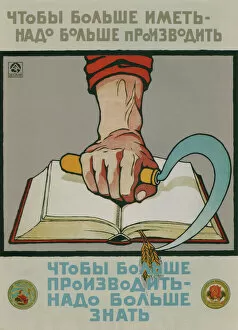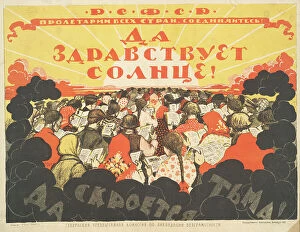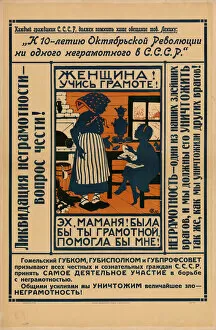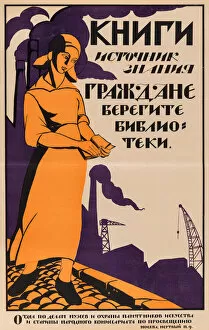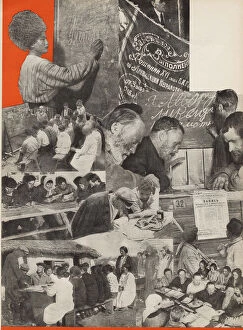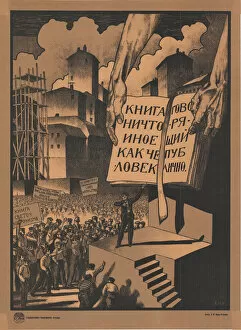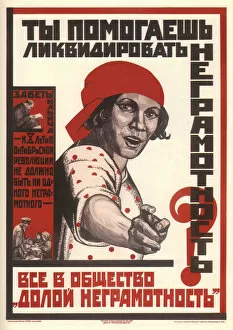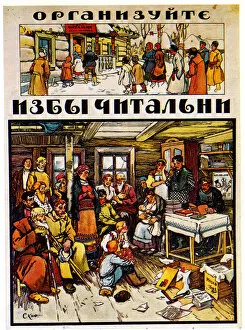Likbez Collection
Likbez, short for "likvidatsiya bezgramotnosti" in Russian, was a campaign launched in the early 1920s to combat illiteracy in the Soviet Union
For sale as Licensed Images
Choose your image, Select your licence and Download the media
Likbez, short for "likvidatsiya bezgramotnosti" in Russian, was a campaign launched in the early 1920s to combat illiteracy in the Soviet Union. The goal was to eradicate illiteracy and promote education among the population. Through various initiatives such as literacy classes, mobile libraries, and propaganda campaigns, likbez successfully increased literacy rates across the country. The impact was profound, as it not only improved individual lives by providing access to education but also contributed to social and economic development on a larger scale. By empowering people with knowledge and skills, likbez helped create a more educated workforce and fostered intellectual growth within society. Although likbez officially ended in the 1940s, its legacy continues to be felt today through ongoing efforts to promote literacy and education worldwide. The importance of combating illiteracy cannot be understated, as it is essential for individuals to have the ability to read, write, and think critically in order to fully participate in society. Likbez serves as a reminder of the power of education and the transformative impact it can have on individuals and communities. It stands as a testament to what can be achieved when we prioritize learning and strive towards creating a more literate world for all.

